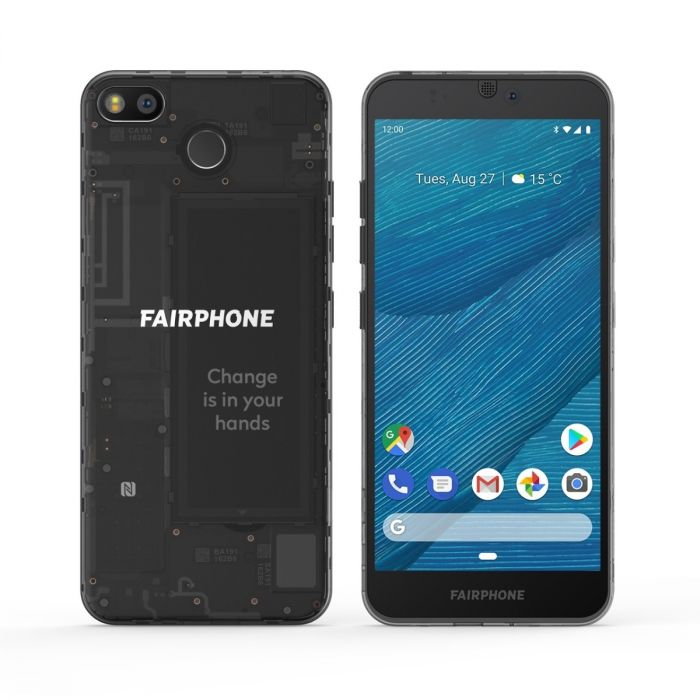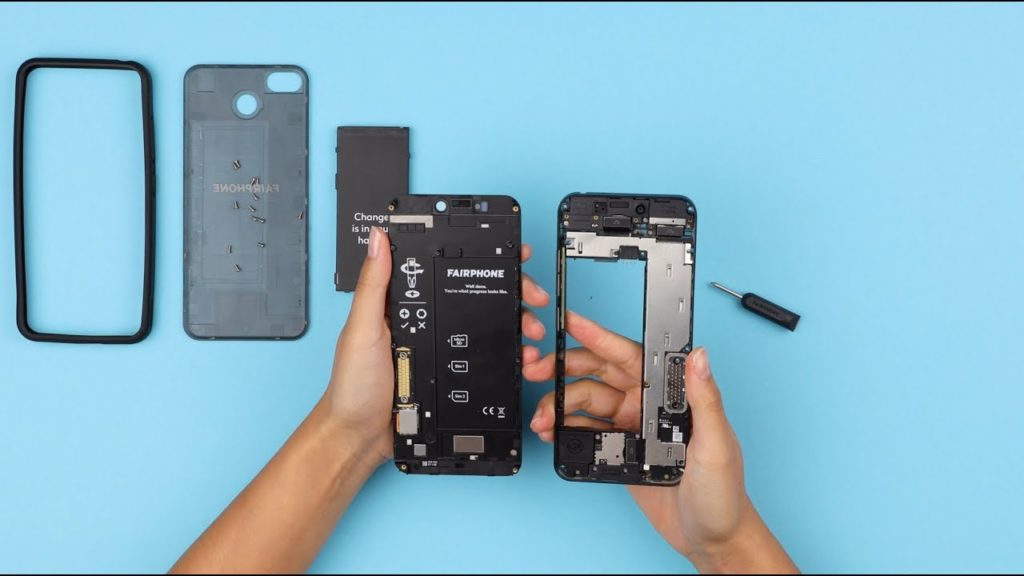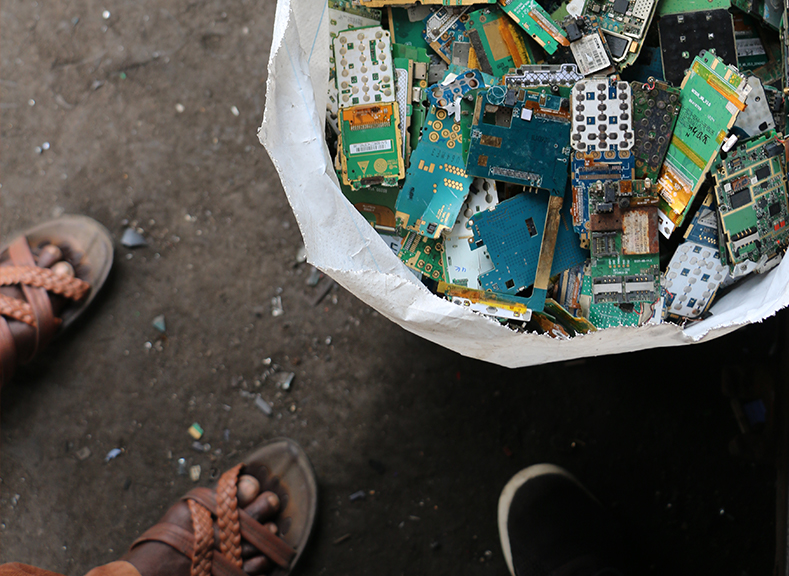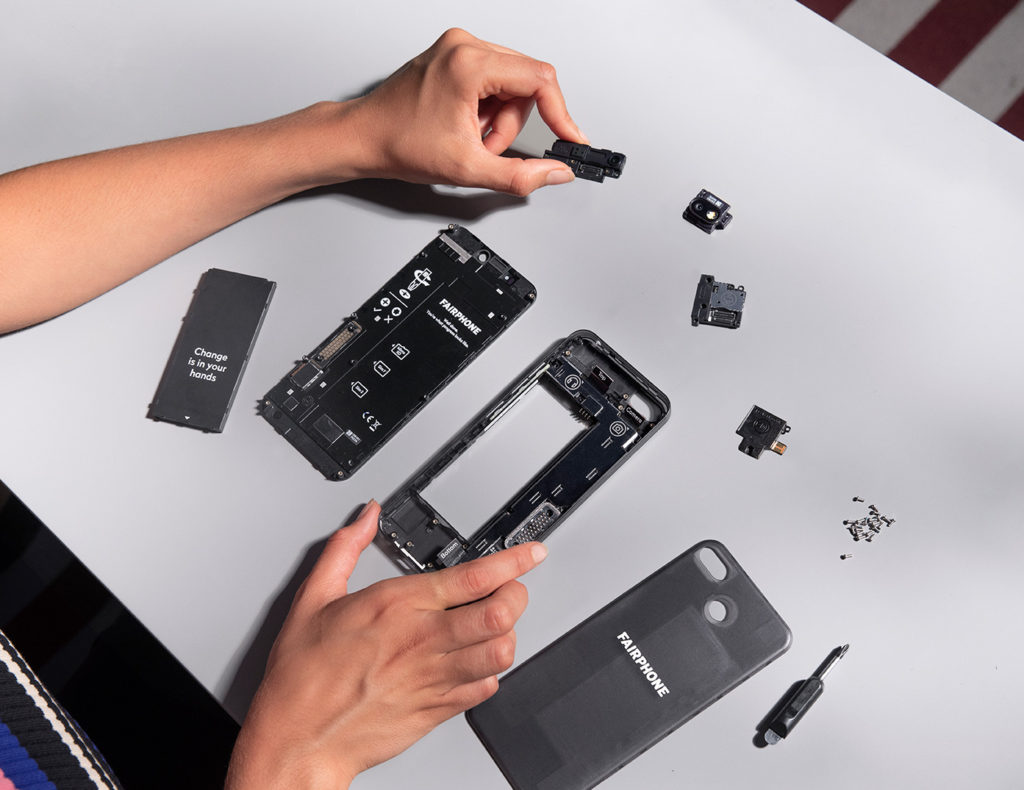Change is in your hand
What is FairPhone?
A phone designed to last over time, in which each component can be easily repaired or replaced by the user, and which respects the rights of workers.
With this goal was born Fairphone, the Dutch company producing ethical smartphones.
It was born from a crowdfunding project and since 2013 is committed to improving the circular production of electronic devices by concretely contributing to creating a better future for humans and the environment.

Positioning in the market: transmodernism and sustainability VS postmodernism and luxury.
The strength of Fairphone is the ability to create a social and economic shared value between the company and the consumer.
The latter recognizes in the product that is buying, Innovation as a means of greater sustainability: it feels part of a system that aims to solve the noble social challenges linked to the environment and human rights, and by purchasing an ethical smartphone it feels to be able to contribute to the cause. According to these dynamics, Fairphone embodies the transmodernism market principles.
The awareness of environmental and social issues makes the consumer on one side more careful considering the environmental impact of manufacturing processes, and on the other, more responsible in choosing ethical purchases that respect the “green” ideology.

The other side of the market follows the policies of postmodernism in which the central focus is the individual consumer who, by purchasing a smartphone or electronic device, acquires with it a series of features designed on purpose to outline a social identity.
The consumer’s identity is in fact undermined by the wide choice of products on the market.
As a result, most of the time it is the market itself that chooses the product the customer will buy: infact the market proposes a sales strategy in which “fashion” is the transitory value that will be purchased. Trends chase a concept of luxury that offers fictitious well-being at the expense of functionality and good design.
In this case, the word “innovation” corresponds to mere sales strategies in which the latest model, equipped with greater functions and comfort, becomes a necessity that cannot be renounced.

Planned Obsolescence
According to this logic, in the electronic device market products are manufactured to have a short life: designed of course to be used, but not to be reused or to be recycled. It is therefore difficult to open and repair them, that is the reason whybuying a new device is ultimately the most convenient solution. In other words, it is based on the Planned Obsolescence strategy.
The resulting environmental impact is devastating.
Fairphone’s communication campaign raises awareness of facts and consequent repercussions that the production of smartphones and the attitude of an average consumer have on the environment. Here are some of them:
- There are more people who have access to a smartphone than to a functioning toilet.
- The number of electronic devices has far exceeded the number of the world population reaching 8 billion
- The life cycle of each device is estimated between two and three years and only 20% of smartphones are recycled. This helps to make the electronic device market the fastest growing polluting system in the world.
- Minerals such as coltan, tin, tungsten, are the raw material from which the components of smartphones are produced and are extracted from mines in Congo whose markets are controlled by those who have an interest in financing the purchase of weapons for the Civil War.
FairPhone, a Dutch company, responds with a great example of a circular economy project.

FairPhone’s answer
Against the planned obsolescence and the capitalist vertical market, Fairphone is betting everything on circularity in favor of workers’ rights and the environment.
The smartphone has a modular structure, and is designed to last as long as possible: most of the components can be recycled, they are repairable and replaceable. A series of tutorials guide the user to act independently with the help of a small screwdriver. Each component can be purchased directly from the site.
The greatness of the project lies in re-evaluating the life of an electronic component as a potential resource and not a waste.
To enforce the project coherency, the company follows a policy that uses a part of the profits obtained to provide the workers who assemble the Fairphones a decent salary increase, and in those countries where work performance is a subject of exploitation, the company pursues the goal of increasing the representation of workers in good health and safety conditions.
In favor of this cause, the mines from which the minerals for Fairphone production are extracted are certified partners by NGOs.

Technical Details:
We’re not talking about the fastest and most performing phone of the world, but Fairphone’s goal is certainly not that one. It works well, has a long-lasting battery and obviously replaceable if necessary. The latest model, the Fairphone 3+ is relatively cheap, it costs from 430 to 470 euros, and can everything you need. It has a Qualcomm Snapdragon 632 processor, 5.65 inch Full HD + 18: 9 screen, 4Gb of ram, 48 MP • f / 1.79 rear camera and 16 MP • f / 2.0 front camera. The storage space is 64Gb expandable to 400Gb with MicroSD card.
Ultimately, when the time of our obsolete smarthpones’ death will come, if on one side throwing it away will contribute to the planet pollution, on the other side we will have the opportunity to don’t repeat the same mistake.
“Change is in your hands” is the slogan written on the Fairphone battery. Understanding that together we co-create the world we live in, we have the opportunity to help to change it. In this case, we can start by choosing to hold in our hands the fairer idea.
